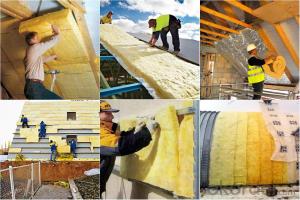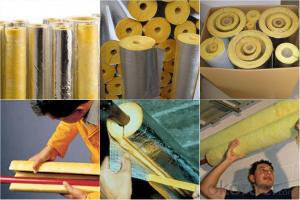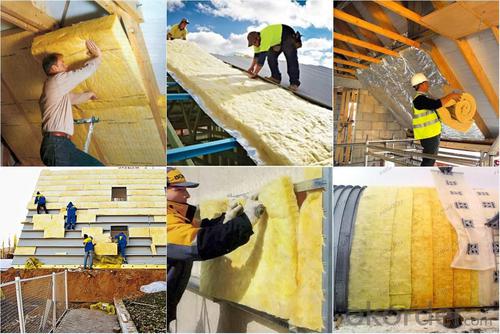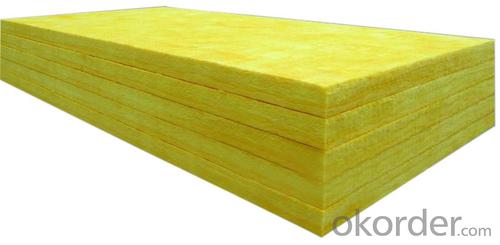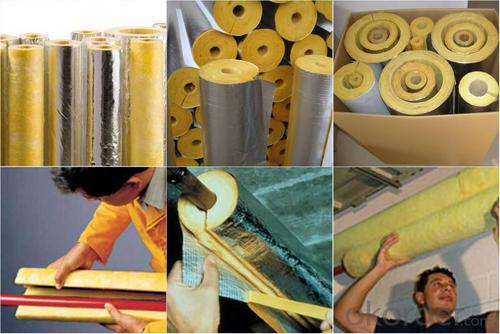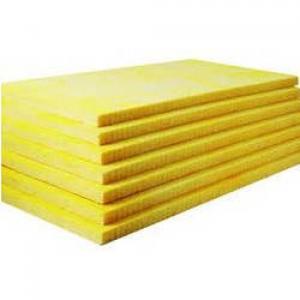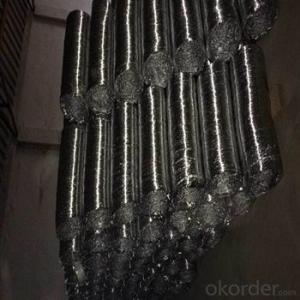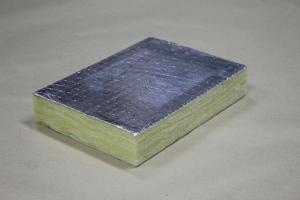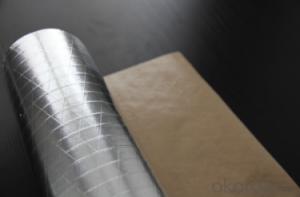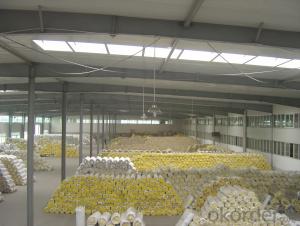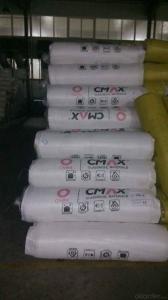Glass wool insulation with one side FSK aluminium foil
- Loading Port:
- Tianjin
- Payment Terms:
- TT OR LC
- Min Order Qty:
- 5000 m²
- Supply Capability:
- 20000 m²/month
OKorder Service Pledge
OKorder Financial Service
You Might Also Like
1.Description of Glass Wool Blanket:
The glass wool product can be made into glass wool board, glass wool blanket, glass wool pipe, and it is widely used for insulation, sound proofing and heat preservation.
We have CE, A1, AS/NZS4859.1, SAI-GLOBAL, MSDS, ISO9001 Certificates.
We will offer Excellent quality, competitive price for customers.
For increasing loading quantity and reducing cost of transportation, all exported glass wool blanket would be packed vacuum.
Glass wool is bright yellow in colour, tasteless or feint in smell, and no-injurant to human body, it's excellent for heat insulation.
2.Main features of Glass Wool Blanket:
1.Excellent thermal, acoustical properties
2.Light weight and easy to fabricate on job site
3.Non-combustible and fire-retardant
3.Glass Wool Blanket Images:
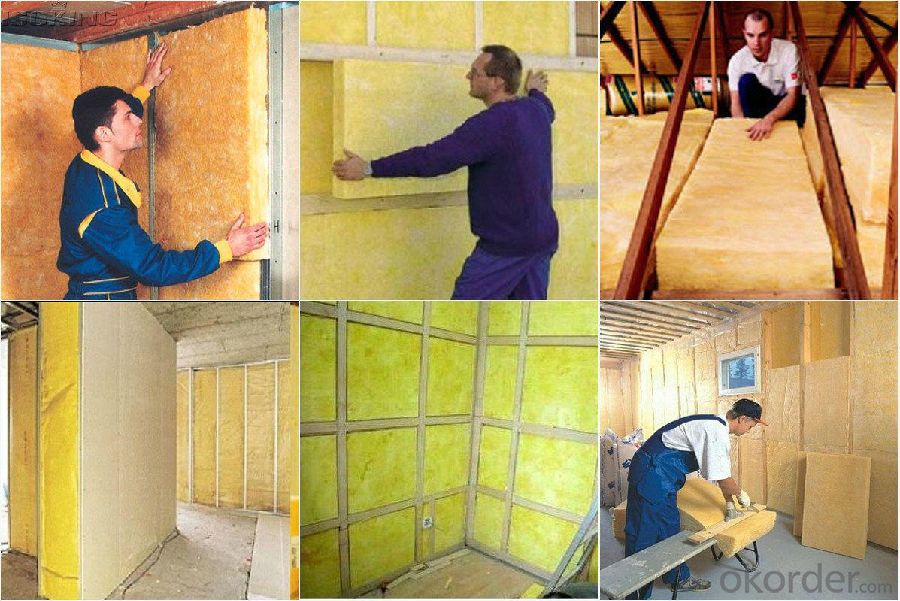
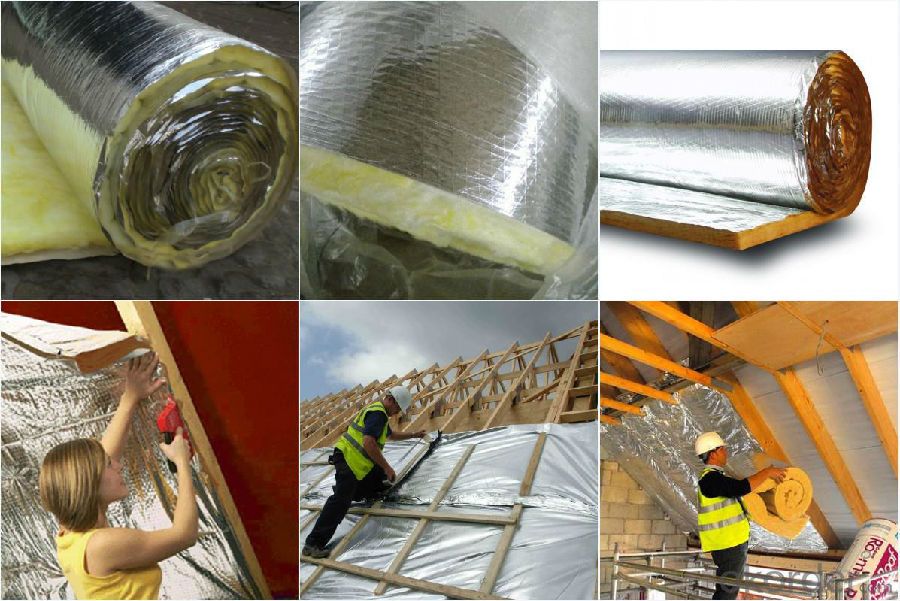
4. Glass Wool Insulation Blanket Technical Parameters:
Property | High/low temperature resistance, oil and fuel resistance, weathering resistance, O zone resistance etc. |
Shape | According to your requirement. |
Color | Any color is available ,according to your requirements. |
Material | NBR, CR, SBR, EPDM, IIR, NR, EP, Silicone, VITON etc. |
Hardness | 30-90ShoreA |
Delivery | In 10 days |
Packing | Plastic bag & carton box or according to your requirements. |
Application | Electronic field, industrial machine & equipment, house-hold appliance, telecommunication, automobile, medical equipment industry etc. |
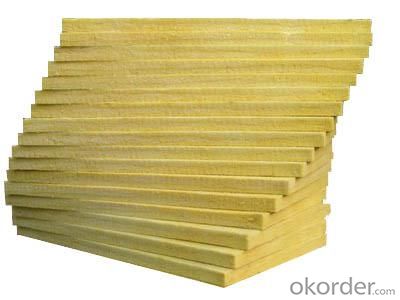
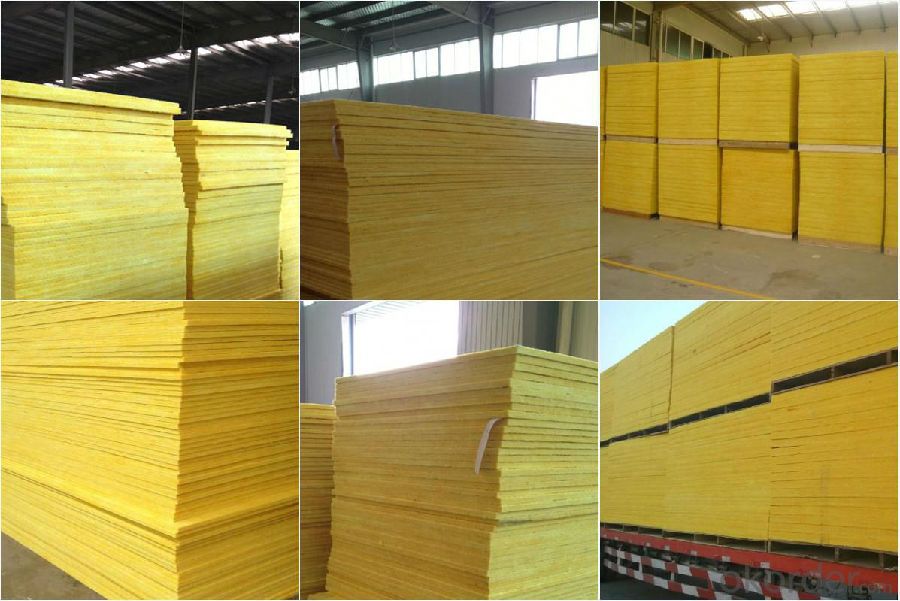
5.FAQ
We have organized several common questions for our clients,may help you sincerely:
①How about your company?
A world class manufacturer & supplier of Glass Wool Blanket is one of the large scale professional investment casting production bases in China,consisting of both casting foundry forging and machining factory. Annually more than 8000 tons Precision casting and forging parts are exported to markets in Europe,America and Japan. OEM casting and forging service available according to customer’s requirement.
②How to guarantee the quality of the products?
We have established the international advanced quality management system every link from raw material to final product we have strict quality test; We resolutely put an end to unqualified products flowing into the market. At the same time, we will provide necessary follow-up service assurance.
- Q: Can fiberglass mat tissue be used for lightweight construction?
- Yes, fiberglass mat tissue can be used for lightweight construction. Fiberglass mat tissue is a thin and lightweight material made up of randomly oriented glass fibers bonded together with a binder. It is commonly used as a reinforcement material in composite laminates and is known for its excellent strength-to-weight ratio. In lightweight construction, where weight reduction is a key consideration, fiberglass mat tissue can be an ideal choice. Its low weight adds minimal additional load to the structure while still providing sufficient strength and durability. The random orientation of the fibers in the mat tissue ensures that the load is evenly distributed, further enhancing its strength properties. Additionally, fiberglass mat tissue is easy to handle and can be easily molded into various shapes and forms. This flexibility makes it suitable for applications in lightweight construction, such as in the production of lightweight panels, wall partitions, and roof structures. The material can also be used in combination with other lightweight materials, such as foam cores or honeycomb structures, to further enhance its lightweight properties. Overall, fiberglass mat tissue is a versatile material that can be effectively used for lightweight construction. Its lightweight nature, combined with its strength and durability, make it a suitable choice for various applications where weight reduction is a priority.
- Q: Does fiberglass mat tissue require any special precautions during storage?
- Yes, fiberglass mat tissue does require special precautions during storage. It should be stored in a dry and well-ventilated area to prevent moisture damage. Additionally, it should be kept away from direct sunlight and extreme temperatures as they can degrade the material. Proper stacking and support should also be ensured to prevent any deformation or damage.
- Q: Can fiberglass mat tissue be used for repairing fiberglass shower stalls?
- Certainly! Fiberglass mat tissue is an excellent choice for fixing fiberglass shower stalls. It is a flexible material that is widely utilized for reinforcing and mending various fiberglass structures, such as shower stalls. Its purpose is to enhance the strength and resilience of the repaired section, guaranteeing a durable and dependable solution. By pairing fiberglass mat tissue with compatible fiberglass resin, one can effectively mend cracks, holes, and other impairments in fiberglass shower stalls. Nevertheless, it is vital to diligently adhere to the instructions and recommendations provided by the manufacturer to achieve optimal outcomes in terms of application and curing.
- Q: Can fiberglass mat tissue be used for reinforcing wind turbine blades?
- Yes, fiberglass mat tissue can be used for reinforcing wind turbine blades. It is commonly utilized in the manufacturing process as it provides strength, durability, and flexibility to the blades, making them more capable of withstanding the forces and stresses experienced during operation.
- Q: Can fiberglass mat tissue be used for making swimming pool shells?
- Yes, fiberglass mat tissue can be used for making swimming pool shells.
- Q: What is the expected lifespan of fiberglass mat tissue in outdoor applications?
- The durability of fiberglass mat tissue when used outdoors can be influenced by a variety of factors, including exposure to weather conditions, maintenance efforts, and material quality. On average, fiberglass mat tissue is designed to last approximately 20 to 30 years in outdoor applications. Fiberglass mat tissue finds widespread usage in outdoor industries such as roofing, construction, and automotive, where it provides reinforcement and strength to surfaces. Its notable characteristics include durability, moisture resistance, and the ability to withstand harsh weather conditions. To ensure an extended lifespan for fiberglass mat tissue in outdoor applications, proper maintenance and protection are vital. Regular inspections, cleaning, and timely repairs can help prevent potential damage and deterioration. Furthermore, the application of protective coatings or sealants can enhance its resistance to UV rays, moisture, and other environmental factors. It is worth mentioning that the lifespan of fiberglass mat tissue may differ based on the specific application and the quality of the material employed. Therefore, it is advisable to consult the manufacturer or an industry professional to determine the expected lifespan for a particular project or application.
- Q: How does fiberglass mat tissue perform in terms of moisture vapor transmission?
- Fiberglass mat tissue performs poorly in terms of moisture vapor transmission due to its inherent non-permeable nature.
- Q: Is fiberglass mat tissue resistant to UV radiation?
- Yes, fiberglass mat tissue is resistant to UV radiation. Fiberglass is known for its excellent resistance to UV rays, making it highly suitable for outdoor applications. UV radiation from the sun can cause materials to degrade, discolor, or become brittle over time. However, fiberglass mat tissue is made with a special resin that provides UV stability, allowing it to maintain its strength and integrity even when exposed to sunlight for extended periods. This makes fiberglass mat tissue a popular choice for various outdoor applications such as roofing, boat construction, and exterior cladding, where it is essential to have a material that can withstand the damaging effects of UV radiation.
- Q: What is the abrasion resistance of fiberglass mat tissue?
- Fiberglass mat tissue exhibits a relatively high level of abrasion resistance due to its composition. Comprised of finely woven or pressed glass fibers, this material possesses exceptional strength and durability, rendering it highly resistant to abrasion. Consequently, fiberglass mat tissue demonstrates remarkable resilience when exposed to friction or contact with other surfaces, as it remains resistant to wear, tear, or damage. It maintains its structural integrity even under harsh scraping, scratching, or rubbing conditions. As a result, fiberglass mat tissue finds widespread use in various industries, particularly in construction for reinforcing concrete and in composite material manufacturing, where the need for abrasion resistance is paramount.
- Q: Can fiberglass mat tissue be used for repairing fiberglass truck beds?
- Yes, fiberglass mat tissue can be used for repairing fiberglass truck beds. It is commonly used in such repairs due to its strength, durability, and ability to bond well with the existing fiberglass surface.
Send your message to us
Glass wool insulation with one side FSK aluminium foil
- Loading Port:
- Tianjin
- Payment Terms:
- TT OR LC
- Min Order Qty:
- 5000 m²
- Supply Capability:
- 20000 m²/month
OKorder Service Pledge
OKorder Financial Service
Similar products
Hot products
Hot Searches
Related keywords
